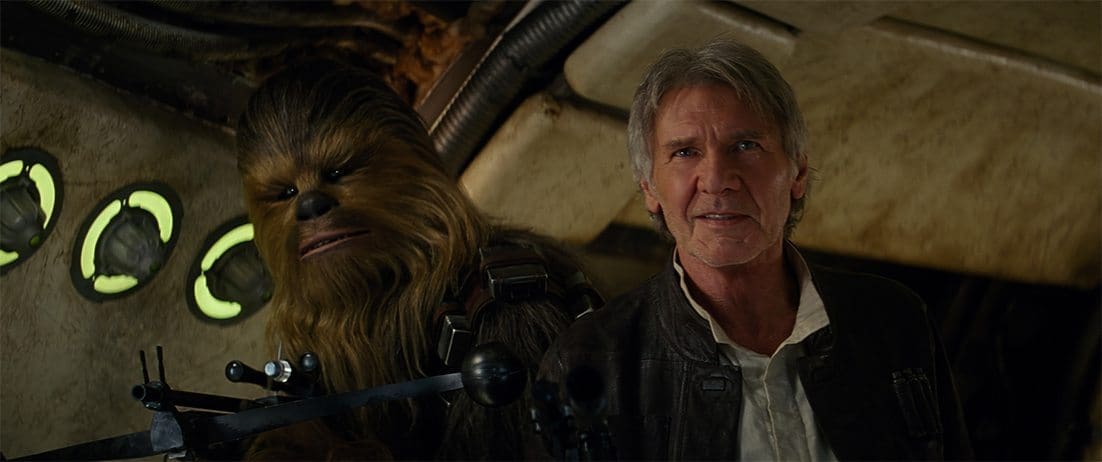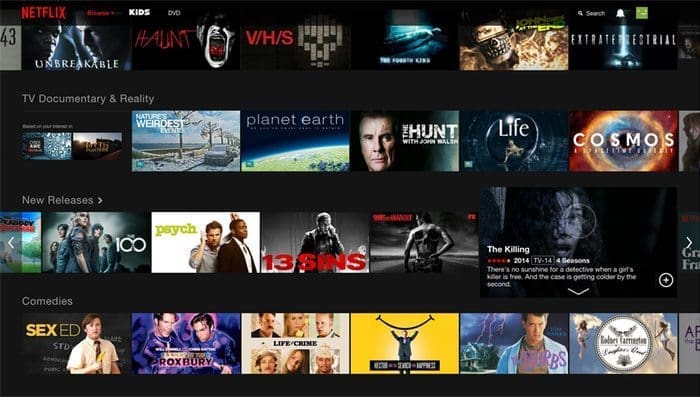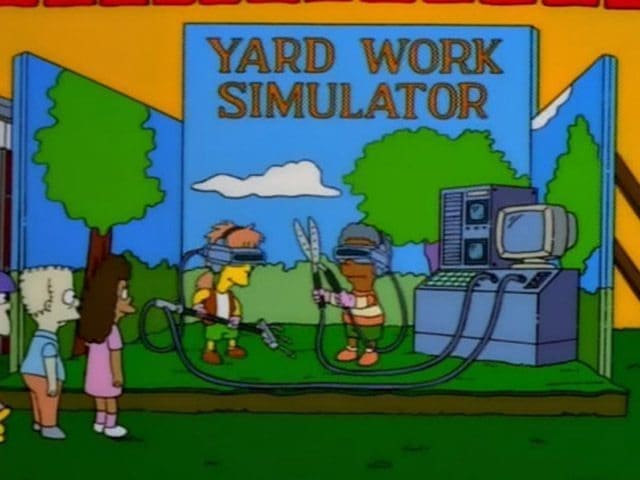
The cinema ain’t what it used to be. The age of reboots has left us all a little disillusioned, and doubtful about the direction of Hollywood. You’ll find more than one major filmmaker spouting warnings about the dire future of movies. But, of course we’re at the cusp of a new golden age, right? Yes. Here’s a few clues we’re in the twilight of the… Twilight era.
5. The Original Content Bandwagon
Movies are stories. They feature moving images and sounds, but they’re still just an evolution of what we once scribbled on cave walls. It may be a little crass to call human expression “content”, but here we are in the Information Age. We say a lot of crass things.
Lucky for us, Netflix, FX, and HBO are piping well-made stories into our phones and living rooms. The cultural space that movies occupy has been unzipped, and the small screen has moved in. Series schmeries. When people talk about Breaking Bad, they talk about it the way they once talked about Pulp Fiction, not Friends.
 Now, we’re seeing the rise of genre-specific streaming services. Even companies like Snapchat and Spotify are working on original video content. As these companies grow, they’ll hit the same threshold HBO did in the ‘80s and Netflix in 2013. They’ll start producing original content.
Now, we’re seeing the rise of genre-specific streaming services. Even companies like Snapchat and Spotify are working on original video content. As these companies grow, they’ll hit the same threshold HBO did in the ‘80s and Netflix in 2013. They’ll start producing original content.
All of this means we’re moving toward a model where people are less likely to see culture-altering movies like JAWS, and more likely to see a hundred different little JAWS’s. There’s a downside. You’re going to find A LOT of crap. But you’re also going to find that bottled lightning movie that becomes the greatest thing in the world to you and a small percentage of others. The odds of you finding new movies you’ll love will (at least logically) increase greatly.
4. The Maker Generation
The last movie you watched was most likely shot on a camera that cost as much as your first car (maybe less). This has been true for several years now. There’s a generation of filmmakers who have been putting in their experience hours from a frighteningly early age with zero concern about Hollywood coming along to grant them magic abilities.
Thus far, it hasn’t yielded the new Spielberg, but it’s only a matter of time. The ease with which one can achieve a professional cinematic look has drawn swarms of youngsters to the game. While it’s also greatly diminished the impact of achieving a professional cinematic look, those swarms aren’t going to give up. They’re going to learn about story and they’re going to learn how to make you care about the things they make. This is an absolute inevitability. When the DSLR baby boomers hit their stride, you’re in for a lot of movie and popcorn consumption.
 3. Virtual Reality
3. Virtual Reality
OK, so this one is about the long game. Virtual Reality was a brave new world in the 1990’s. Like all brave new worlds, it cooled fast, and by the late 90s, it was fodder for Letterman’s Top 10.
But those of us geeky and logical enough to see its potential knew we’d someday go crawling back to VR. And crawling, we are. Companies like Apple, Google, Disney, and Sony have all invested cartoonish amounts of money and resources into developing VR.
VR could have a larger impact on movies than any technology since the camera. The ability to step into a synthetic world and have your 5 senses tell you the things they now tell you about reality would make for one powerful storytelling tool. Will it dip back out of vogue again before finding its place? Maybe. The Matrix still seems pretty far off. But no matter how you slice it, there will come a day when somebody will sit behind Han Solo and Chewbacca on the Millennium Falcon. Count on it.
2. Jurassic World
I know what you’re thinking, “Another reboot/make/hash killed it at the box office, and added one more decade to this horrible era of reboots and remakes.”
You’re kind of right. Jurassic World has blown through more than enough records to solidify a paragraph in wiki/Film. There’s no arguing that Jurassic World will inform the way movies are produced for the next 3-5 years. It’s been a decade since Batman Begins and we’re still getting post-Batman Begins movies.
The reason JW represents a shift in the reboot era is that it truly is a sequel, not a do-over. Also, the idea of “fixing” existing ideas about a property goes out the window with JW. It’s a love letter to its predecessor. Its quality as a self-contained movie notwithstanding, it used a highly influenced and inspired aesthetic to earn a billion dollars in 2 weeks. It shares much with the way Lucasfilm and Amblin movies were inspired by Saturday afternoon serials, and adventure movies from the ‘30s. It’s that translation of older material, not an updating that sets it apart from the trend of the last decade.
1. Movies have been pretty bad for a while.
Lastly, and most importantly, movies are about to get really great because they’ve been so bad for so long. There’s a million reasons for the perceived decline in movie quality. Everything from overreliance on computer-generated effects to the bad priorities in story development.
But it’s always darkest before dawn, and everything comes back around. There are definitely signs of it. Many big movies have abandoned digital for celluloid again. George Miller finally got to make a sequel to 1985’s Mad Max: Beyond Thunderdome, and it reminded everybody what great action movies are supposed to be. We finally graduated out of the torture horror and we’re back in spooky houses. It even seems like studios are turning more and more to proven quality filmmakers and putting out movies that hold that filmmakers voice.
With any luck, we’ll continue on the upswing, and pretty soon we’ll all be meeting at the concession stand. Then we can talk about getting rid of all those rude people sitting behind us.
Comments are closed.